GitHub Launches the True Code Knowledge Base: Copilot Spaces!
GitHub Copilot Spaces: The ultimate code knowledge base—unify code, docs & team knowledge in one place.
"AI Disruption" Publication 6700 Subscriptions 20% Discount Offer Link.
GitHub has launched Copilot Spaces, a true code knowledge base.
Knowledge management is currently too fragmented, especially for code.
Code, documentation, design specifications, best practices, and even many critical details are scattered across different corners.
Some are hidden in code repositories, some lie quietly on documentation sites, and others exist only in the deep recesses of a veteran colleague’s mind.
For new team members needing to quickly push projects forward in unfamiliar domains, knowledge asymmetry and inefficient knowledge transfer are the biggest obstacles to progress!
GitHub’s Copilot Spaces was born to address this pain point.
As a new member of the Copilot family, Spaces uses “spaces” as a unit to break down barriers between code and its context, enabling centralized management and flexible sharing of team knowledge, making Copilot the ultimate code knowledge base for developers.
The core value of Copilot Spaces: It can integrate all key project-related content—including code, documentation, design notes, operational records, and even custom Copilot instructions—into a single space.
Compared to the previous Copilot, which could only answer questions based on a “global” knowledge base, the new Copilot can now provide more relevant and targeted suggestions within a specific space, based on your team’s own context.
For example:
You can create a space for a specific microservice, mobile app, or business line, incorporating related code repositories, API documentation, process descriptions, and team agreements.
Each space can have independent custom instructions to further refine Copilot’s behavior and response style.
This transforms Copilot from a mere “smart autocompletion tool” into a “domain expert” that understands your project’s history, structure, and business logic.
Another key feature of Spaces is that it significantly lowers the barrier to knowledge sharing.
You simply create a space within your organization and invite team members to join. Whether it’s a new colleague or a cross-team collaborator, they can directly interact with Copilot in the space to access the most relevant knowledge and suggestions for the current project.
“Information silos” and “reinventing the wheel” are no more!
In large organizations and complex projects, Spaces enables quick identification of best practices, reuse of existing resources, and accelerated project progress.
As team members continuously contribute to and optimize the space’s content, Spaces evolves into a “living knowledge base” for the team.
Unlike traditional knowledge bases, Copilot Spaces’ standout feature is its deep integration with the GitHub repository ecosystem.
You can directly add code and documentation from repositories to a space without manual copying and pasting. When repository content changes, the context in the space automatically syncs and updates.
Copilot provides suggestions based on the latest project state, avoiding the risks and misguidances caused by outdated documentation.
Currently, Copilot Spaces is available for preview at github.com/copilot/spaces, and all Copilot users can try it out.
Free users have a monthly quota of 50 conversation interactions.


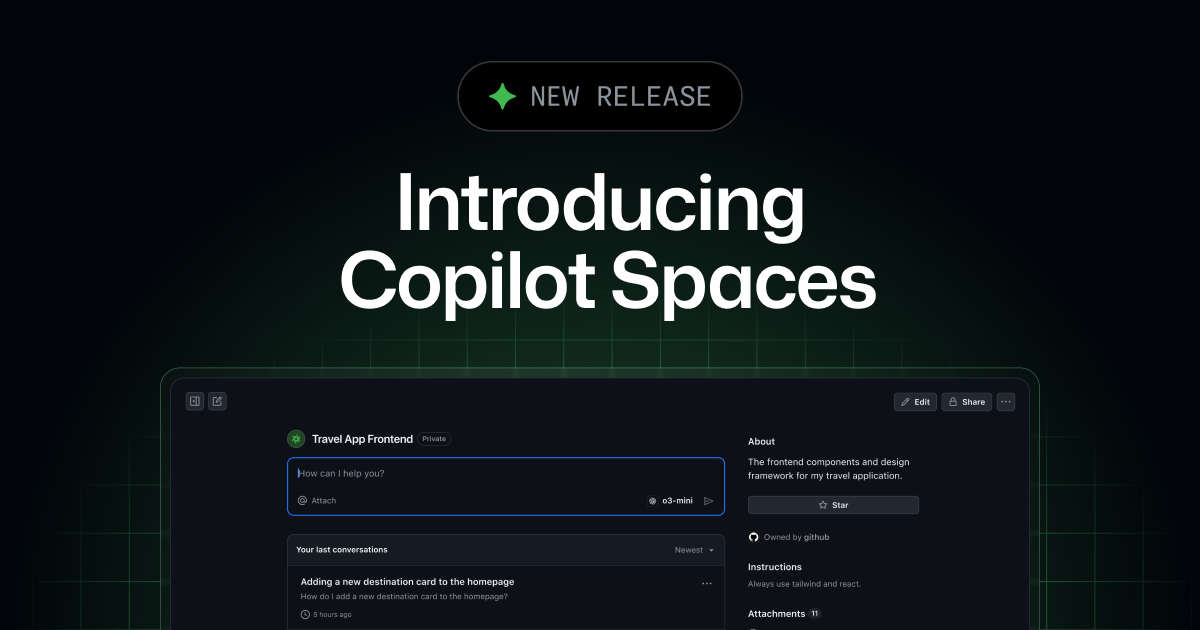
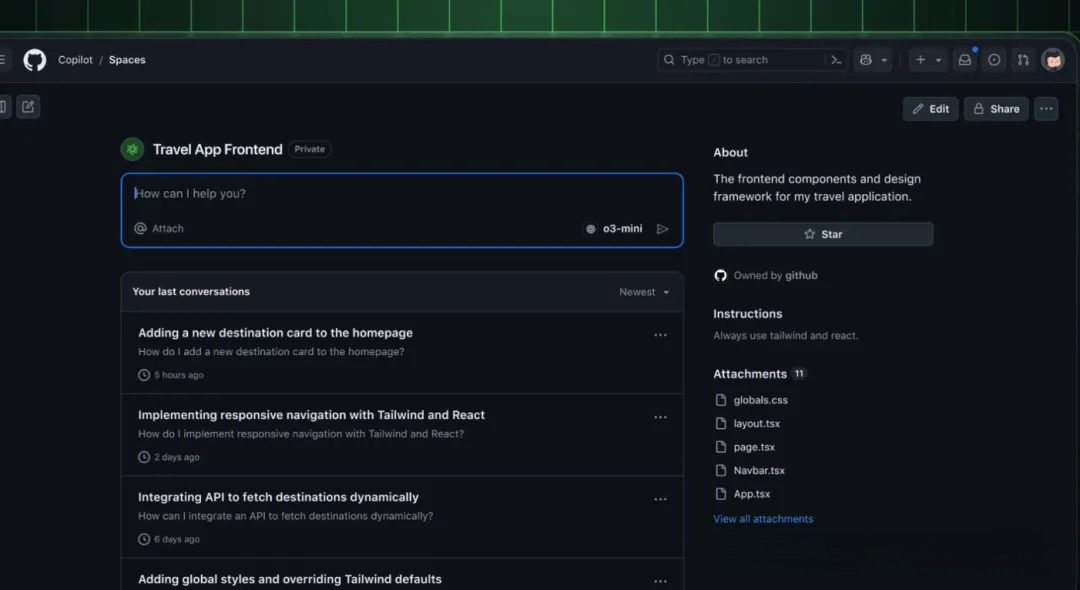
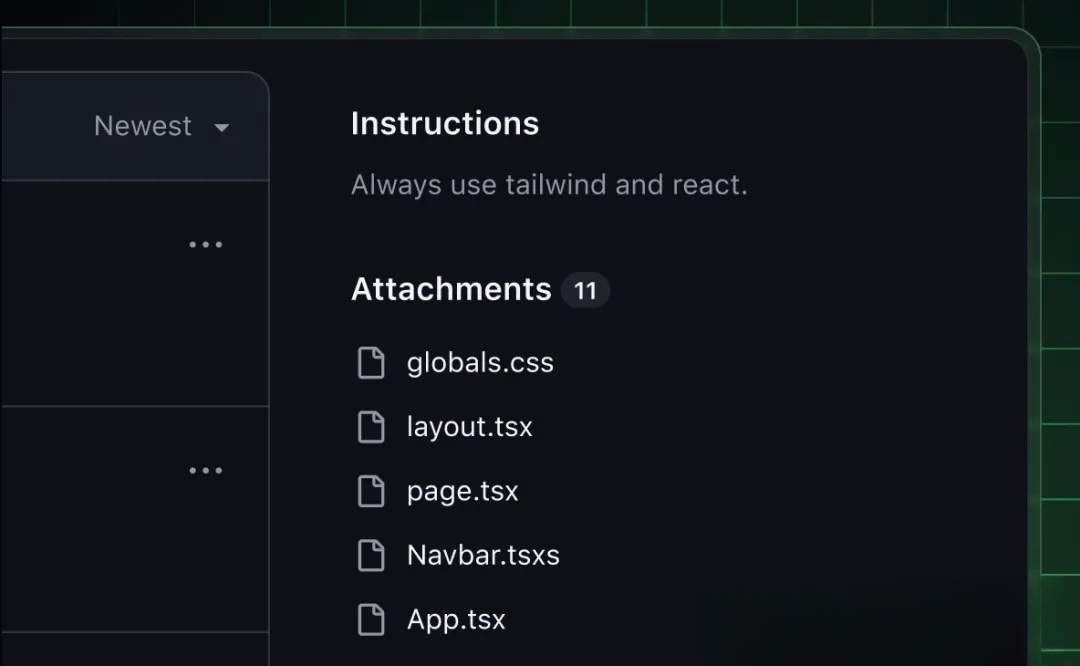
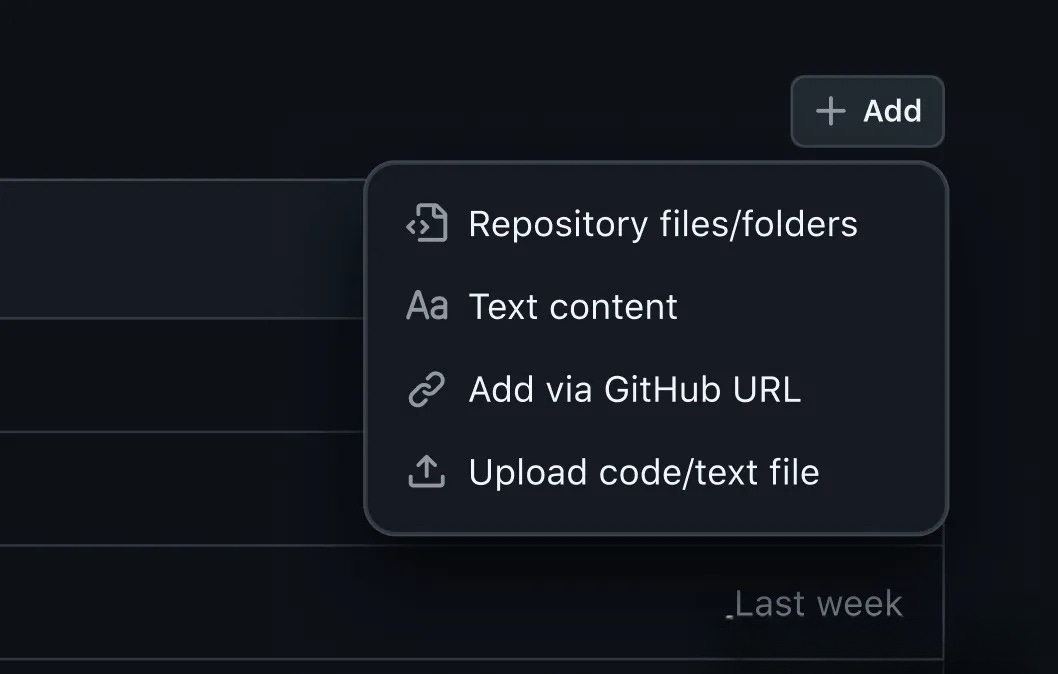
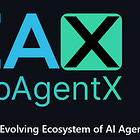

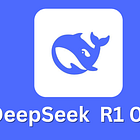
This is super interesting. I wonder how to best implement in a multi-project monorepo? Where there are multiple folders (each with their own structures) for different parts of the system.